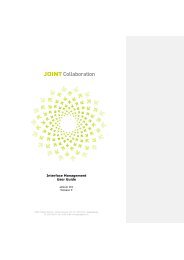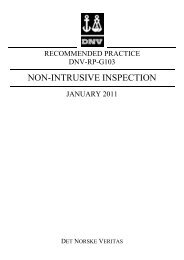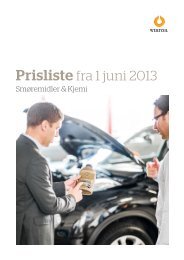Ida Ekblad MarIus Engh anawana haloba lars lauMann - Statoil
Ida Ekblad MarIus Engh anawana haloba lars lauMann - Statoil
Ida Ekblad MarIus Engh anawana haloba lars lauMann - Statoil
Create successful ePaper yourself
Turn your PDF publications into a flip-book with our unique Google optimized e-Paper software.
At a recent conference dedicated to reviewing<br />
the former editions of Documenta, held in the<br />
fall of 2009 at the Castello di Rivoli in Turin,<br />
Okwui Enwezor pointed out that as curator of<br />
the 12 th edition he wished to address how the<br />
global sphere narrates in relation to a wider<br />
range of traditions of form. This re-addressing<br />
of the traditions in and around the narrative and<br />
within oral culture seemed to evoke Jacques<br />
Ranciere’s thoughts about the poetic utterance<br />
as that which links the modern stance with<br />
political subjectivity. For Ranciere, poetry is an<br />
“art of composing fables that belongs to the<br />
political experience of the physical – that is to<br />
the relationship of the city – the laws that reign<br />
there, but also to the songs that are sung and<br />
to the humour of the citizens.”<br />
This understanding of the poetic is perhaps the<br />
best way to approach the working method of<br />
Zambian-born artist Anawana Haloba.<br />
Haloba’s artistic practice is symbiotically<br />
linked to her preparatory exercise of drafting<br />
poetry in the form of sketches, which she then<br />
98<br />
abstracts into performative-based works within<br />
installations incorporating moving images,<br />
objects and sound. “I look at my work as a<br />
project in the form of an ongoing discussion –<br />
a work that does not strive toward completion<br />
but is rendered as a point of departure from<br />
which a discussion starts,” observes Haloba.<br />
As an artist who attests to having written<br />
poetry from the time she could formulate a<br />
coherent sentence, Haloba insists that her<br />
reason for doing so was not to align herself<br />
with script that reflected the childlike visions<br />
of the fantastic or the rhythmic redundancy of<br />
the onomatopoetic. Instead, Haloba sourced<br />
the visual and socio-political landscape<br />
immediately available within her native Zambia<br />
in the formulation of her still youthful text:<br />
(opposite page)

















